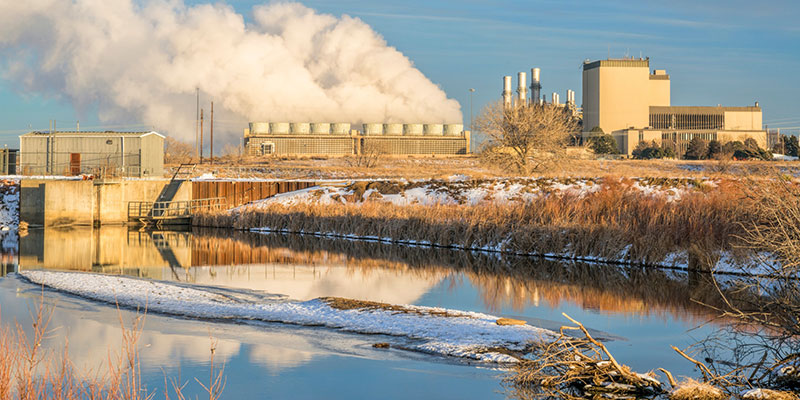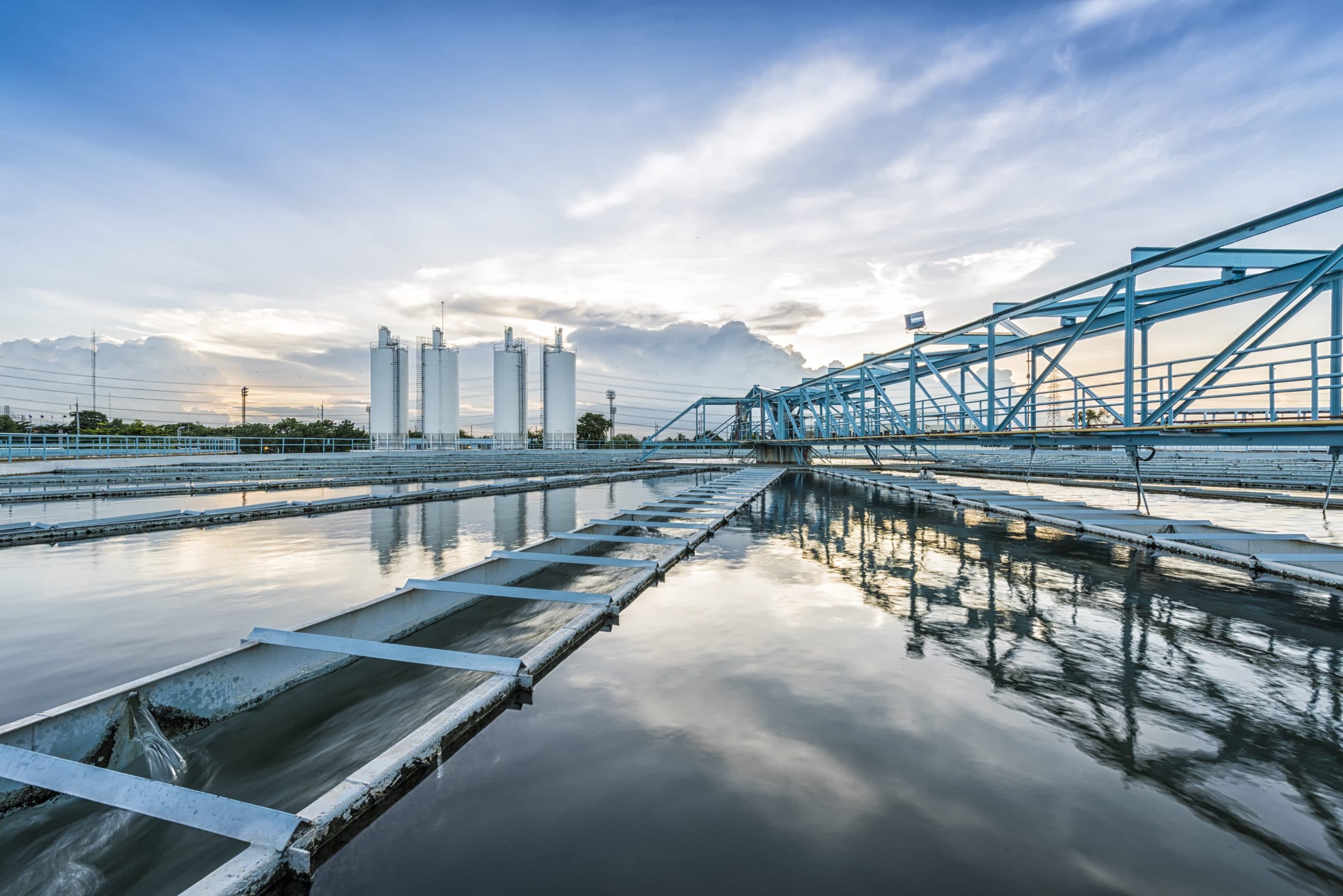The Role of Industrial Waste Water Therapy in Environmental Defense
The reliable therapy of commercial wastewater is progressively acknowledged as a cornerstone of environmental defense, offering to alleviate the damaging impacts of pollutants on marine ecosystems. As sectors broaden and evolve, the demand for robust wastewater monitoring options becomes paramount to make certain conformity with environmental laws and advertise sustainable techniques. This requires a closer exam of the treatment refines utilized and their implications for both ecological health and wellness and resource recuperation. Understanding these characteristics raises essential concerns about the equilibrium between commercial growth and environmental integrity, triggering further expedition of the courses ahead.
Relevance of Waste Water Treatment
The value of wastewater therapy can not be overstated, as it plays an important duty in protecting public health and wellness and the atmosphere (Industrial Waste Water Treatment). Reliable wastewater therapy systems are essential for eliminating pollutants from commercial discharge, therefore preventing hazardous compounds from going into all-natural water bodies. This procedure lessens the threat of waterborne diseases, which can arise from neglected wastewater, and safeguards neighborhood health and wellness
Additionally, dealt with wastewater can be safely recycled in numerous applications, such as watering and industrial processes, promoting sustainable water administration methods. By recycling water, markets can substantially minimize their freshwater usage, contributing to resource conservation.
Along with health and wellness advantages, wastewater therapy is vital for maintaining aquatic environments. Toxins in neglected wastewater can cause the destruction of water top quality, hurting aquatic life and disrupting environmental equilibriums. By dealing with wastewater prior to discharge, sectors aid maintain the integrity of local communities and promote biodiversity.
Moreover, governing conformity is a vital facet of wastewater monitoring. Following established ecological standards not only stays clear of lawful consequences however likewise improves a business's credibility as an accountable business citizen. Fundamentally, effective wastewater treatment is indispensable for safeguarding public health, protecting the setting, and advertising lasting industrial practices.

Sources of Industrial Waste Water
Industrial wastewater stems from a selection of sources, each contributing to the complexity of therapy procedures. Predominantly, these sources include producing facilities, refineries, and processing plants, which produce effluents as a by-product of their procedures. Industries such as fabrics, drugs, food and beverage, and petrochemicals produce considerable volumes of wastewater, usually packed with pollutants consisting of hefty metals, natural compounds, and nutrients.
Along with manufacturing, agricultural activities add to industrial wastewater with overflow and effluent from livestock operations and crop processing. The meat and dairy products markets, in specific, are understood for releasing high levels of biochemical oxygen demand (BODY) and microorganisms.
Moreover, mining and mineral handling tasks create wastewater consisting of suspended solids and dangerous chemicals. Power generation plants, particularly those using fossil fuels, also contribute wastewater through cooling down systems and chemical cleansing procedures.
Each of these sources presents distinct difficulties regarding the composition and quantity of wastewater produced, requiring tailored treatment remedies to alleviate their ecological effect. Understanding the varied beginnings of industrial wastewater is important for developing effective administration strategies targeted at shielding water sources and advertising sustainable industrial techniques.
Treatment Processes and Technologies
Reliable treatment processes and modern technologies are vital for handling industrial wastewater and minimizing its environmental impact. Numerous methods are used to eliminate pollutants, adjust to different wastewater characteristics, and follow regulative criteria.
Physical treatment procedures, such as sedimentation and filtering, facilitate the elimination of suspended solids. These techniques are frequently made use of as preliminary actions to decrease the lots on subsequent therapy phases. Chemical treatment, consisting of coagulation, flocculation, and neutralization, addresses liquified toxins by changing their chemical properties, making them much easier to separate from water.
Organic treatment innovations, such as activated sludge systems and biofilters, use microbes to degrade organic matter and nutrients. These approaches are particularly effective for eco-friendly waste streams, promoting the natural decomposition procedure. Advanced therapy technologies, such as membrane filtering and progressed oxidation procedures, offer enhanced elimination effectiveness for tough pollutants, including heavy metals and consistent natural substances.
Each of these therapy procedures can be set up in various combinations to produce tailored options that fulfill details commercial needs. The choice of technology relies on aspects such as the kind of wastewater, wanted therapy end results, and financial factors to consider, making certain that industries can operate sustainably while lessening their environmental impact.
Ecological Advantages
Carrying out durable wastewater therapy refines not only guarantees compliance with regulatory standards but also yields substantial ecological advantages. my blog Efficient treatment of industrial wastewater reduces the discharge of harmful pollutants right into all-natural water bodies, consequently safeguarding aquatic environments. By eliminating harmful substances, hefty steels, and microorganisms, these processes aid preserve biodiversity and promote healthier ecological communities.
Furthermore, treated wastewater can be repurposed for various applications, consisting of irrigation and industrial procedures, reducing the demand for fresh water resources. This reuse not just saves water but also minimizes the tension on local water products, which is especially crucial in water-scarce areas.
Furthermore, effective wastewater therapy mitigates the threat of soil and groundwater contamination, ensuring the stability of local atmospheres. Industrial Waste Water Treatment. By avoiding the seepage of dangerous materials, industries add to the overall wellness of surrounding environments and communities, improving public trust and promoting lasting industrial techniques
Regulatory Framework and Conformity
A comprehensive regulative structure governs the therapy of commercial wastewater, ensuring that markets stick to stringent compliance criteria. Numerous national and regional laws, such as the Clean Water Act in the United States, established forth restricts on the discharge of pollutants right into water bodies. These policies are created to safeguard marine communities and public wellness by mandating that sectors execute suitable therapy modern technologies.
Conformity with these regulations typically entails getting authorizations, conducting regular monitoring, and reporting discharge levels to regulative authorities. Failure to conform can lead to substantial fines, consisting of penalties and functional constraints, therefore incentivizing sectors to take on ideal techniques in wastewater management.
In addition to governmental regulations, many industries also follow volunteer criteria and qualifications, such as ISO 14001, which advertise lasting ecological administration methods. Stakeholders are progressively promoting for enhanced transparency and responsibility in wastewater administration, pushing for stricter enforcement and even more extensive reporting needs.
Eventually, a robust regulatory structure not only serves to minimize ecological risks yet additionally promotes a society of sustainability within the commercial industry, urging constant improvement in wastewater therapy procedures.
Conclusion

The effective therapy of industrial wastewater is increasingly identified as a foundation of ecological security, serving to alleviate the harmful influences of contaminants on aquatic ecological communities. Efficient wastewater therapy systems are vital for removing pollutants from industrial discharge, consequently avoiding unsafe compounds from getting in all-natural water bodies.Industrial wastewater stems from a variety of resources, each adding to the complexity of therapy great site processes. Efficient therapy of industrial wastewater minimizes the discharge of hazardous toxins into natural water bodies, therefore protecting water environments.In final thought, commercial wastewater therapy is important for guarding environmental stability and advertising lasting water management.
Comments on “Industrial Waste Water Treatment-- Comprehensive Solutions for Wastewater Disposal”